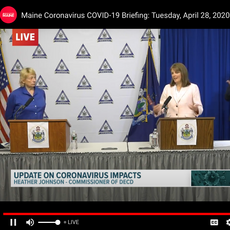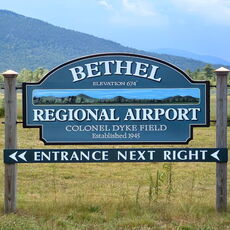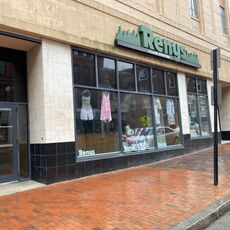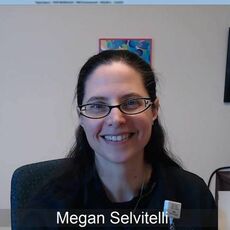Processing Your Payment
Please do not leave this page until complete. This can take a few moments.
- News
-
Editions
-
- Lists
-
Viewpoints
-
Our Events
-
Award Honorees
- 2025 Business Leaders of the Year
- 2025 Outstanding Women in Business
- 2024 Women to Watch Honorees
- 2024 Business Leaders of the Year
- 2023 NextUp: 40 Under 40 Honorees
- 2023 Women to Watch Honorees
- 2023 Business Leaders of the Year
- 2022 NextUp: 40 Under 40 Honorees
- 2022 Women to Watch Honorees
- 2022 Business Leaders of the Year
-
-
Calendar
-
Biz Marketplace
- News
- Editions
- Lists
- Viewpoints
-
Our Events
Event Info
- View all Events
- Outstanding Women in Business Reception 2025
- On The Road with Mainebiz in Bath
- 60 Ideas in 60 Minutes Portland 2025
- 40 Under 40 Awards Reception 2025
- On The Road with Mainebiz in Lewiston / Auburn
- + More
Award Honorees
- 2025 Business Leaders of the Year
- 2025 Outstanding Women in Business
- 2024 Women to Watch Honorees
- 2024 Business Leaders of the Year
- 2023 NextUp: 40 Under 40 Honorees
- 2023 Women to Watch Honorees
- + More
- 2023 Business Leaders of the Year
- 2022 NextUp: 40 Under 40 Honorees
- 2022 Women to Watch Honorees
- 2022 Business Leaders of the Year
- Nomination Forms
- Calendar
- Biz Marketplace
Government & Politics
-
Supreme Court rules Lewiston health insurer is owed $59M in fed back payments
Staff April 29, 2020Community Health Options paid into a risk-sharing program set up by the Affordable Care Act. But after losing money, the nonprofit health insurer never received federal payments from the program.
Staff April 29, 2020Business leaders from Portland to Presque Isle concerned about reopening plan
Renee Cordes April 29, 2020Soon after Gov. Janet Mills announced her plan for reopening businesses in Maine, hospitality and retail industries express concerns about its timeline.
Renee Cordes April 29, 2020Maine freelancers, fishermen can soon get unemployment benefits
Staff Updated: April 29, 2020In response to the ongoing health and economic crisis, a new program will open this Friday that expands eligibility for unemployment benefits to categories of workers not typically able to receive them in the past.
Staff Updated: April 29, 2020Maine delegation flexes muscles on behalf of aquaculture farmers
Renee Cordes Updated: April 30, 2020Maine's U.S. senators and representatives speak out to the federal Agriculture Department in search of funding for the state's aquaculture industry, which has been hard hit by the ongoing crisis.
Renee Cordes Updated: April 30, 2020Mills unveils plan to reopen Maine economy in stages, but not 'flipping a switch'
Renee Cordes Updated: April 29, 2020The governor on Monday announced a four-staged strategy to allow many types of business to resume operations. The phase-in targets the next three months, with the timing of a final stage still to be determined.
Renee Cordes Updated: April 29, 2020Five Maine airports receive $6.1M in federal aid for improvements
Updated: April 28, 2020While the pandemic grounds much air travel, five Maine airports have received a total of $6.1 million through the U.S. Department of Transportation’s Airport Improvement Program.
Updated: April 28, 2020Belfast council wants state to get moving on Nordic Aquafarms application
Laurie Schreiber April 27, 2020The Belfast City Council is asking a state board to get on with its review of a salmon farm proposal by videoconferencing, rather than wait until the board can meet in person.
Laurie Schreiber April 27, 2020Portland expected to lengthen stay-at-home order, consider CDBG funding
Renee Cordes April 27, 2020At tonight's virtual meeting via Zoom, councilors are expected to vote on extending the city's emergency order until May 18, along with measures related to short-term rentals and adult-use marijuana.
Renee Cordes April 27, 2020After financing frenzy, Maine lenders launch second round of small-biz bailout loans
Renee Cordes April 27, 2020Maine banks and credit unions are gearing up for a busy week of loan applications, in the second round of the federal Paycheck Protection Program that began this morning. But lenders warn the money is likely to run out quickly.
Renee Cordes April 27, 2020Mills lays out vision to reopen economy gradually, as businesses await more fed relief
Renee Cordes April 24, 2020The timetable for lifting business restrictions and reopening the state's economy will be driven by public health considerations, the governor said. Meanwhile, a bill providing another $484 billion in emergency relief across the country is expected
Renee Cordes April 24, 2020$13.5M in fed funds will support Maine's rural health system, child care providers
Staff April 24, 2020Under the CARES Act, Maine has received $2.5 million to support rural hospitals and telehealth and $11 million to support access to child care for essential workers.
Staff April 24, 2020Unemployed Mainers may get a 'raise,' and it's the highest in the US
Staff April 23, 2020Emergency unemployment benefits from the federal government represent a higher portion of average wages in Maine than in other states. As a result, some Mainers without jobs may — temporarily — end up with checks more than they previously earned.
Staff April 23, 2020Insider Notebook: Portland mulls nearly $1M in CDBG development money
Maureen Milliken April 22, 2020Half of the $2 million the city has from the federal Community Development Block Grant program goes to construction and development; a Jefferson sawmill destroyed by fire last year is open, with help from CDBG money.
Maureen Milliken April 22, 2020As businesses try to stay afloat, Portland loosens rules, Bangor and L-A add resources
Maureen Milliken April 21, 2020Portland is allowing nonessential businesses to ship items ordered by phone or online, and offer non-contact delivery and curbside pickup, after a clarification of city rules last week caused an uproar from small businesses.
Maureen Milliken April 21, 2020Maine nonprofits demand more federal relief under CARES Act
Renee Cordes Updated: April 21, 2020Financial assistance under the CARES Act has been helpful for nonprofits, but more funding is needed, according to the Maine Association of Nonprofits.
Renee Cordes Updated: April 21, 2020Program pairs investors with Maine startups whose technology can help address crisis
Staff April 20, 2020A national effort spearheaded by Village Capital and Sorenson Impact Foundation is looking to match investors with startups and entrepreneurs, so they can scale and adapt their technology to help with the COVID-19 crisis.
Staff April 20, 2020
Today's Poll
Poll DescriptionThe Portland City Council is weighing a controversial proposed hike to the city’s minimum wage.
The proposal would increase the minimum wage from $15.50 per hour to $19 per hour by 2028. (The statewide hourly minimum wage is $14.65.)
The proposal does not include a wage hike for tipped workers who are currently paid an hourly wage of $7.75, but employers are required to ensure that wages and tips combined total $15.50 per hour.
While inflation pressures have made it hard to survive on the minimum wage, many business owners are concerned the hike would cut already thin margins.

The Giving Guide
The Giving Guide helps nonprofits have the opportunity to showcase and differentiate their organizations so that businesses better understand how they can contribute to a nonprofit’s mission and work.
Learn More
Work for ME
Work for ME is a workforce development tool to help Maine’s employers target Maine’s emerging workforce. Work for ME highlights each industry, its impact on Maine’s economy, the jobs available to entry-level workers, the training and education needed to get a career started.
Learn More
Groundbreaking Maine
Whether you’re a developer, financer, architect, or industry enthusiast, Groundbreaking Maine is crafted to be your go-to source for valuable insights in Maine’s real estate and construction community.
Learn more-
The Giving Guide
The Giving Guide helps nonprofits have the opportunity to showcase and differentiate their organizations so that businesses better understand how they can contribute to a nonprofit’s mission and work.
-
Work for ME
Work for ME is a workforce development tool to help Maine’s employers target Maine’s emerging workforce. Work for ME highlights each industry, its impact on Maine’s economy, the jobs available to entry-level workers, the training and education needed to get a career started.
-
Groundbreaking Maine
Whether you’re a developer, financer, architect, or industry enthusiast, Groundbreaking Maine is crafted to be your go-to source for valuable insights in Maine’s real estate and construction community.
ABOUT
NEW ENGLAND BUSINESS MEDIA SITES
No articles left
Get access now
In order to use this feature, we need some information from you. You can also login or register for a free account.
By clicking submit you are agreeing to our cookie usage and Privacy Policy
Already have an account? Login
Already have an account? Login
Want to create an account? Register
This website uses cookies to ensure you get the best experience on our website. Our privacy policy
To ensure the best experience on our website, articles cannot be read without allowing cookies. Please allow cookies to continue reading. Our privacy policy














